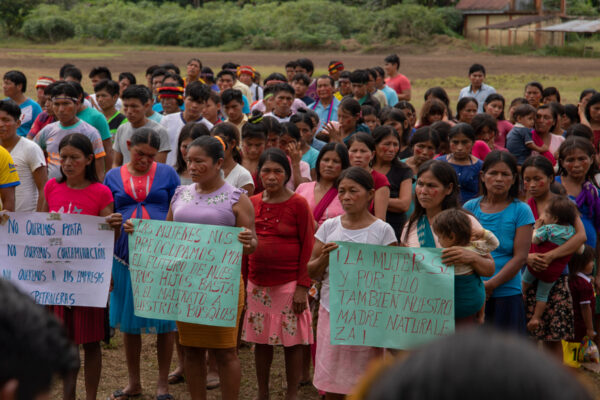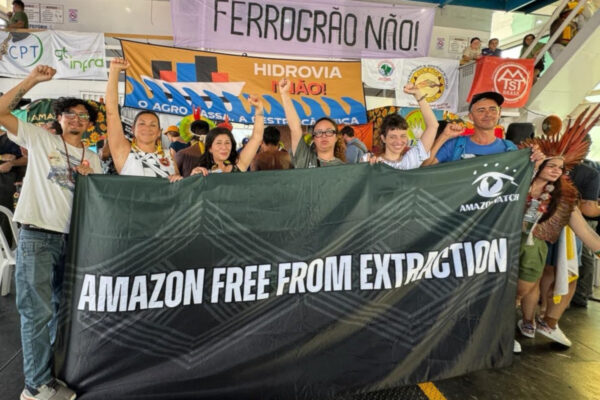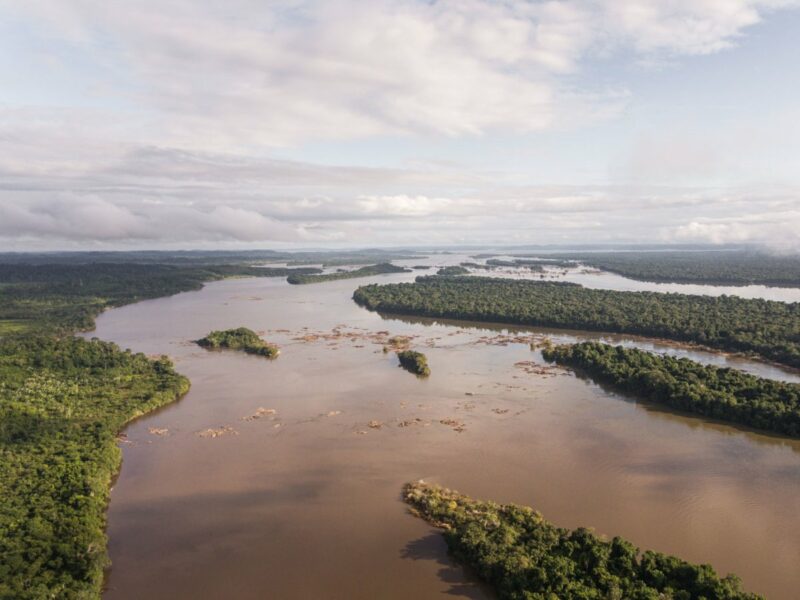Brasilia, Brazil – On Friday, August 8, the Brazilian government vetoed 63 provisions of Bill 2.159/2021, widely known as the Environmental Licensing Bill or the “Devastation Bill.” The decision came after intense pressure from civil society organizations, Indigenous leaders, and environmental defenders, who submitted a petition with over 1 million signatures urging President Lula to reject the bill in its entirety.
While the veto rolls back some of the most harmful measures approved by Congress, it leaves intact several provisions that still pose serious risks and demand close public scrutiny.
Among the positive outcomes, the veto blocks the expansion of the License by Adhesion and Commitment (LAC) mechanism for medium-impact projects, preventing risky ventures from moving forward based solely on self-declaration. It also maintains protections for Conservation Units, Indigenous and Quilombola communities, and ecologically sensitive biomes like the Atlantic Forest.
Crucially, the decision preserves requirements for environmental impact assessments and reaffirms the technical authority of key regulatory agencies, including Ibama, ICMBio, and Iphan.
The veto offers partial progress by restoring protections for Indigenous and Afrodescendent communities in the licensing process, but it fails to address deeper structural injustices – such as the historic denial of recognition and protection for Indigenous territories that remain undemarcated. Hundreds of Indigenous lands remain unrecognized and will continue to be excluded from the licensing process, while arbitrary distance limits – like the 8 km rule for mining, beyond which communities are no longer considered impacted – still deny communities the right to be consulted, even when serious environmental risks are present.
“This legal fiction poses an existential threat to communities that remain invisible in the licensing process,” said Ana Alfinito, legal advisor at Amazon Watch.
One of the bill’s most controversial provisions – the Special Environmental License (LAE) – remains in effect under a new executive order (provisional measure) issued with immediate applicability. Although the veto eliminated the option to issue all licenses in a single step, the LAE still fast-tracks high-impact infrastructure, mining, and oil exploration projects – especially in ecologically and socially vulnerable regions of the Amazon.
At an August 8 press conference, Environment and Climate Change Minister Marina Silva emphasized the importance of institutional dialogue and public engagement in shaping Brazil’s environmental licensing policy:
“The participation of all sectors of society involved in the licensing debate only shows how strategic the environmental agenda truly is. May this ongoing dialogue with Congress lead us to solutions that benefit environmental protection, sustainable development, and the safeguarding of traditional peoples and communities, so that Brazil may usher in a new era of prosperity, where the economy and ecology are not at odds, but part of the same equation.”
Amazon Watch views the government’s position as a reflection of competing political and economic pressures, including internal divisions. While the decision avoids some of the worst outcomes, it fails to fully defend environmental and Indigenous rights. On the eve of COP30, Brazil missed the opportunity to send a clear global signal about its commitment to climate justice and the protection of Amazonian peoples and ecosystems.
Given this scenario, Amazon Watch reaffirms its opposition to Bill 2.159/2021 and joins the broader civil society call urging Congress to uphold the presidential vetoes.
Ana Alfinito, legal advisor at Amazon Watch, explains:
“The presidential veto is significant and must be acknowledged. Nonetheless, the legislative process continues to erode the land rights of Indigenous and traditional communities.
“Many institutional actors involved in the legislative debates appear to agree on the need to simplify and accelerate environmental licensing. What we truly need is to accelerate the demarcation of Indigenous Lands and traditional territories.
“We will continue to assess the implications of this regulation, particularly in the cases we monitor closely, such as the Belo Sun and Brazil Potash mining projects in the Brazilian Amazon.”














